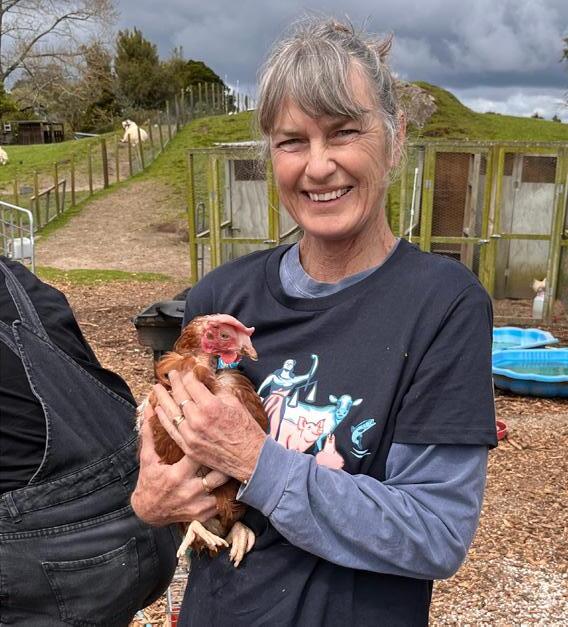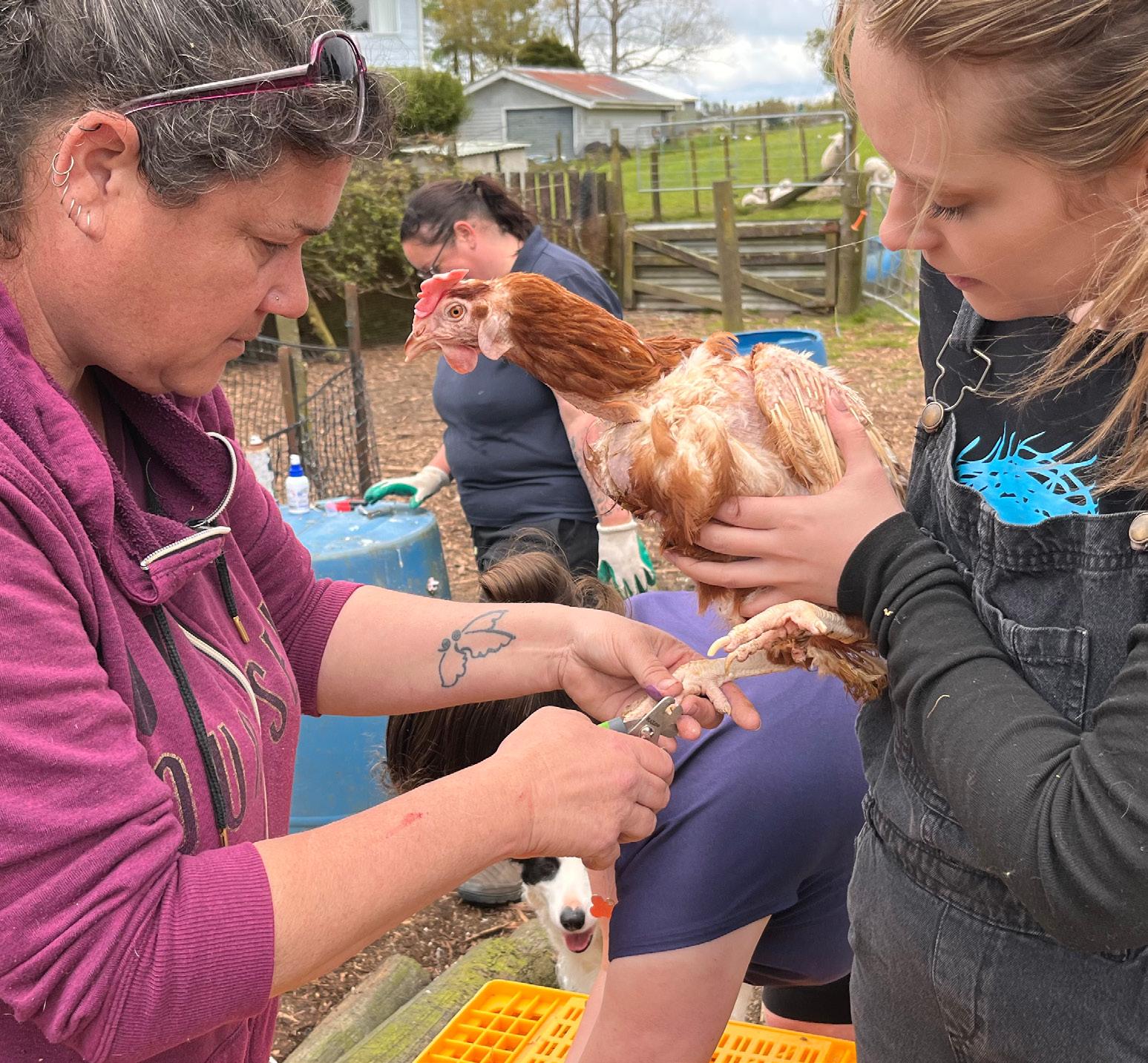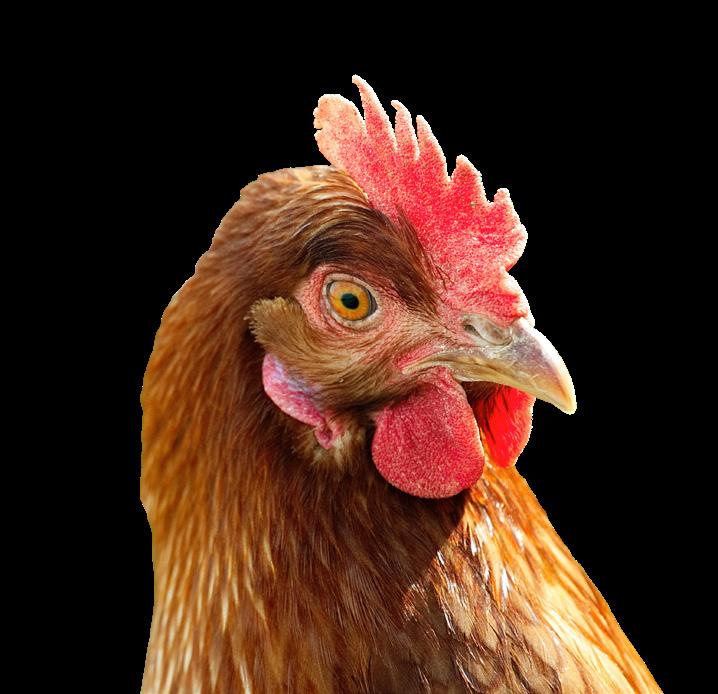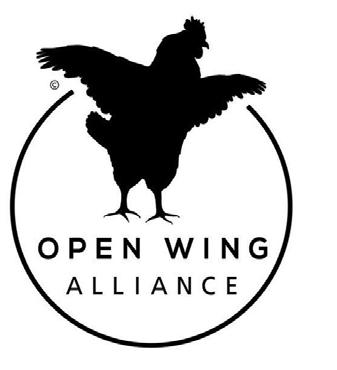
2 minute read
A win, and a caveat, for hens
For many years, SAFE has lead the charge on freeing hens from a life in cages. After a ten-year phaseout period, battery cages were officially banned in Aotearoa on 1 January 2023. This was a huge win for millions of hens, but it is not the whole story.
In 2012, a phaseout of battery cages was initiated after it was recognised that confining hens in battery cages breached their legal rights under the Animal Welfare Act 1999. At that time, 89% of hens farmed for their eggs were kept in battery cages.
Hens confined in battery cages were forced to endure a lifetime of discomfort and deprivation. Up to six hens would be kept in one battery cage, restricting each bird to a space smaller than an A4 sheet of paper for their entire lives.
After many years of campaigning, and a 10 year phaseout period, the dawn of 2023 also brought with it a new, battery cage-free era in New Zealand.
In the lead up to the ban, SAFE teamed up with Free as a Bird Rescue to liberate hundreds of hens from a battery cage farm. It was a confronting experience for everyone; the level of suffering these birds had endured was heart-breaking. Many of the hens were unwell and suffered from feather loss, overgrown claws, and parasite infestations.
While it was an incredibly difficult day, we all took comfort in knowing these hens were about to experience something beautiful –freedom. We watched on in awe as they felt the warmth of sunshine for the first time in their lives, walked on solid ground instead of cold metal bars, and moved around freely without restriction. The hens we rescued had a long road to recovery, but they had a second chance to live the life they always deserved.

“

Hens have waited ten long years for battery cages to be banned in Aotearoa. While this is good progress, we must ensure the millions of hens who are still confined in colony cages are given the same freedom.


Jessica Chambers, SAFE Head of Campaigns
Today, 33% of commercially farmed hens are classed as ‘free range’. However, another 33% are farmed in intensive indoor barns, and the final 33% are kept in colony cages, which are barely distinguishable from battery cages.
Sadly, these cages remain in use across New Zealand even though they too violate the legal rights of hens. The Animal Welfare Act 1999 states animals must be able to display normal patterns of behavior, an impossible feat for hens confined within intensive colony cages. Colony cages prevent hens from expressing their most basic natural behavior, including moving around freely, stretching their wings, foraging for food, manipulating nesting materials, and dustbathing.
One colony cage is crammed with up to 80 hens, where each bird is restricted to a space slightly larger than an A4 sheet of paper. These overcrowded conditions can lead to serious health issues and cause hens to experience elevated levels of frustration and distress. This can lead to aggressive behaviors like pecking, feather pulling, and even cannibalism.

The egg industry wants New Zealanders to believe colony cages are a welfare-friendly farming environment, but video and photographic evidence SAFE has repeatedly made public show the filthy and cramped conditions these birds are kept in are anything but humane. Scientific evidence clearly shows confining hens in such unnatural living conditions is incompatible with their welfare needs, a fact being recognised by leaders around the world.
Cages are banned or are being actively phased out in Switzerland, Denmark, Luxembourg, Austria, Germany, Slovakia, the Czech Republic, Israel, and Belgium. In the USA, ten states have already banned the sale and production of cage eggs.

Open Wing Alliance

SAFE is proud to have received an international grant from the Open Wing Alliance organisation for the fifth consecutive year. This grant has allowed SAFE to continue its cage-free corporate campaign work ensuring policy holders adhere to their commitments to remove eggs supplied from caged hens from their supply chains. Open Wing Alliance is made up of 55 animal groups from around the world.








